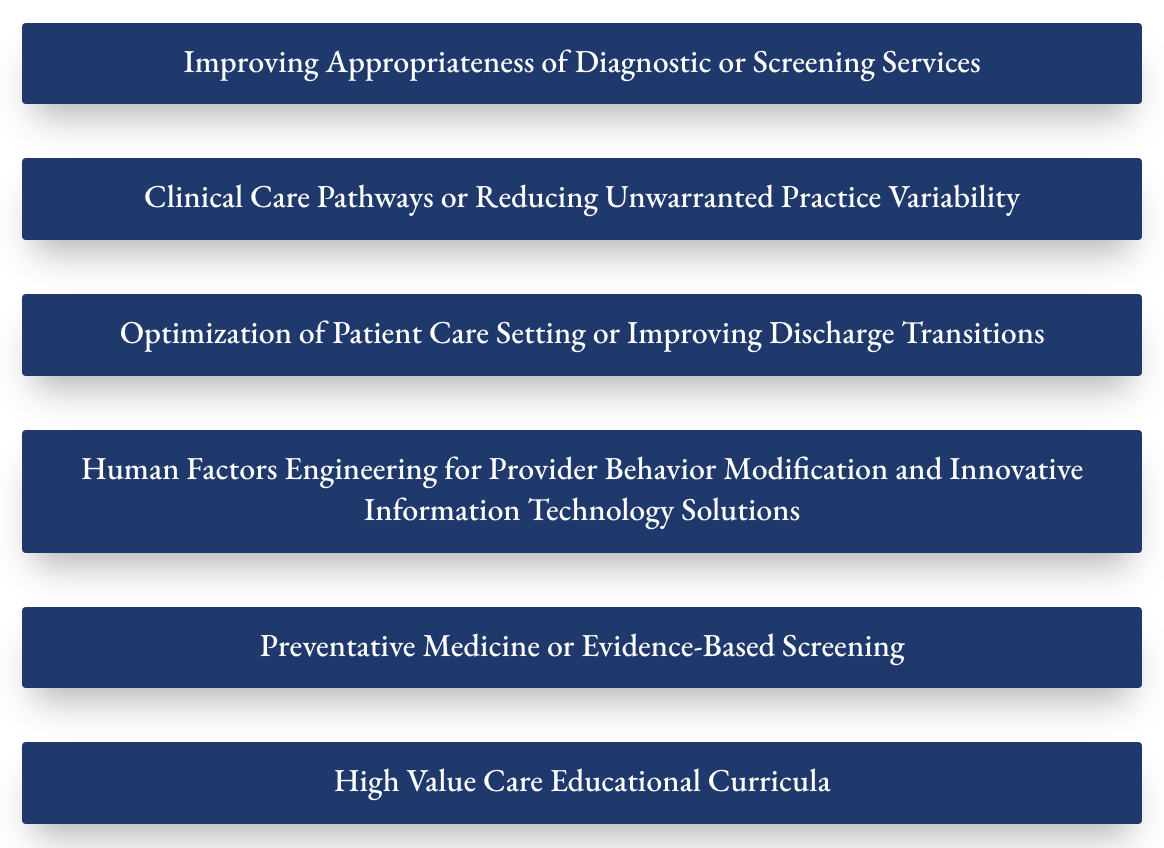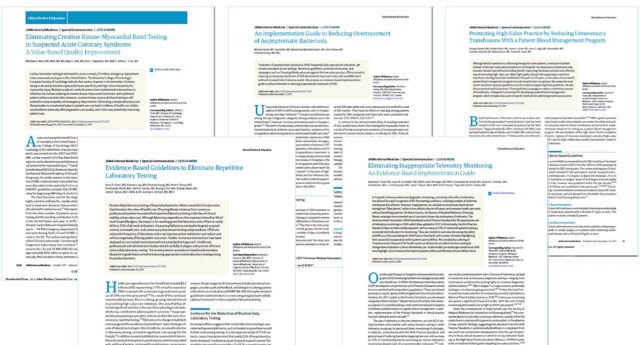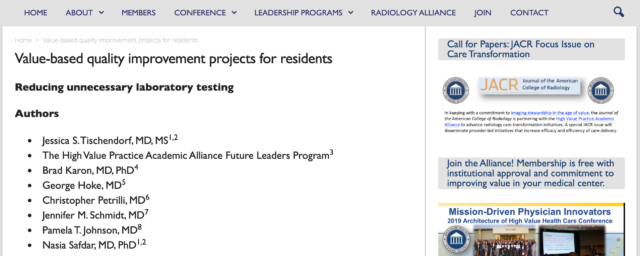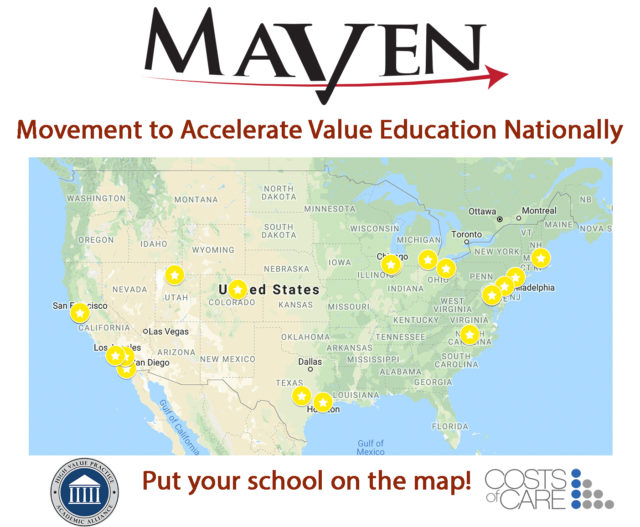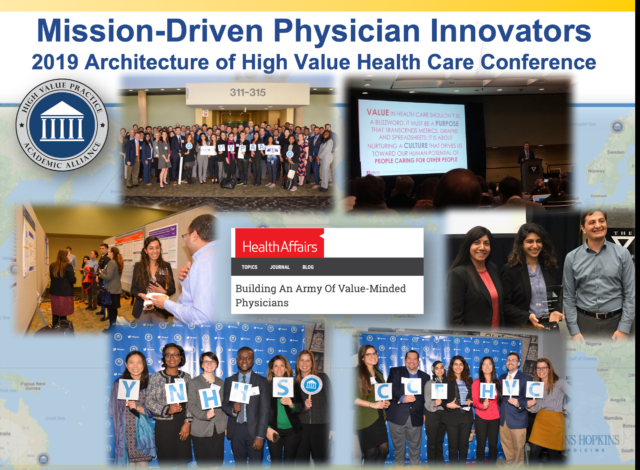From the 2021 HVPAA National Conference
Ashwini Komarla (Orlando Veterans Affairs Healthcare System), Joshua Shultz (UCF HCA Healthcare Graduate Medical Education), Abdo Asmar
Background
Quality Improvement (QI) is an evolving aspect of medical education and care. Although a core accreditation requirement of an internal medicine resident’s training, the implementation of a QI curriculum can be challenging. Internal medicine residents in our program needed a structure to develop skills in QI and patient safety to facilitate a project. Residents at our institution also did not have a forum to showcase their work, while at the same time sharing and presenting ideas and projects with faculty and other disciplines.
Objective
To describe our curriculum structure and Quality Improvement (QI) Project Forum for other medical educators and programs.
Methods
A robust longitudinal curriculum focusing on clinical application of QI concepts was developed for the internal medicine residency.
- PGY1 – Development of foundational skills and basic concepts, terminology and tools; IHI curriculum via self-directed learning, creation of a QI project
- PGY2 – Development and implementation of QI group project – mentorship by Chief Resident in Quality and Patient Safety (CRQS)
- PGY3 – Active panel management of resident’s continuity clinic patients as a quality improvement initiative – mentored by CRQS
As a culmination of this curriculum, a multidisciplinary forum where residents from multiple programs submit QI and patient safety projects was designed. Residents present oral and poster presentations that are judged against each other and awards are distributed for most innovative project, project most likely to impact patient care, and best presentation. Tools were developed to help standardize the review process for selection of awards.
Results
The curriculum has resulted in all internal medicine residents successfully utilizing QI processes and participating at the annual forum. In total 24 team projects have been completed by our residents, and 5 additional projects are in process. This has resulted in scholarly work and publications outside of our institution at Regional and National meetings.
All internal medicine residents have participated at the annual forum and the forum’s participation has grown across other disciplines including the Emergency Medicine, Psychiatry, Obstetrics and Gynecology, and Pharmacy training programs. Not only have we have attracted nationally recognized QI speakers for the keynote lecture, but residents have also been able to share ideas and interest in their QI work. The Forum has been also been a venue to partner and provide visibility with QI leaders at our training institutions.
Conclusions
A structured curriculum with flexibility has allowed residents to learn QI processes and then utilize the tools in a team project of their choosing. Residents have been able to carry these tools with them to apply in other settings and their future careers.
This is the first multidisciplinary forum of this kind of which we are aware. Friendly competition and a forum to showcase projects in a formal setting has stimulated resident interest in QI and patient safety work. The tools developed for judging have standardized the judging process, while allowing for project diversity.
Clinical Implications
This curriculum can be used as guide to allow residents to learn QI and Patient Safety tools while allowing flexibility to stimulate their interest. Having a forum to showcase their work to other disciplines in our institution and creating a friendly competition has motivated strong work and opened up channels of communication among different training disciplines at our institution.
